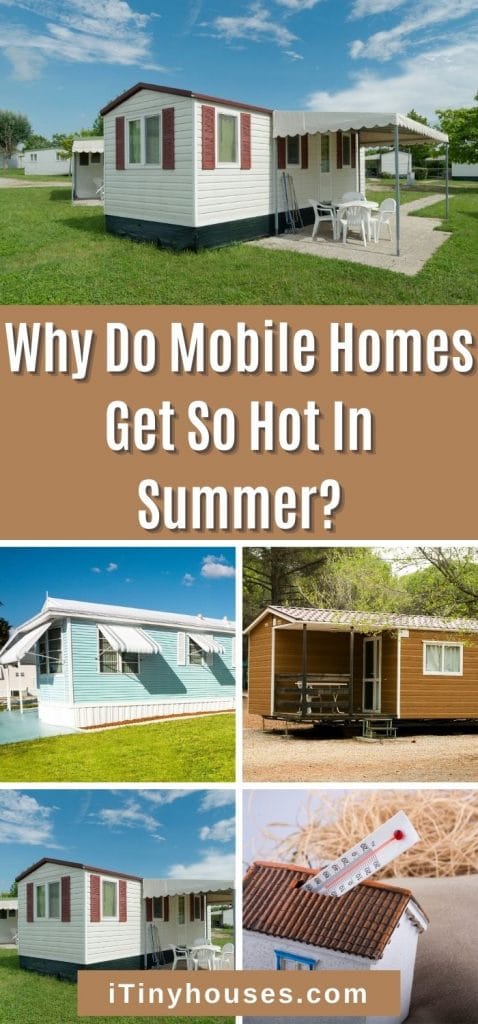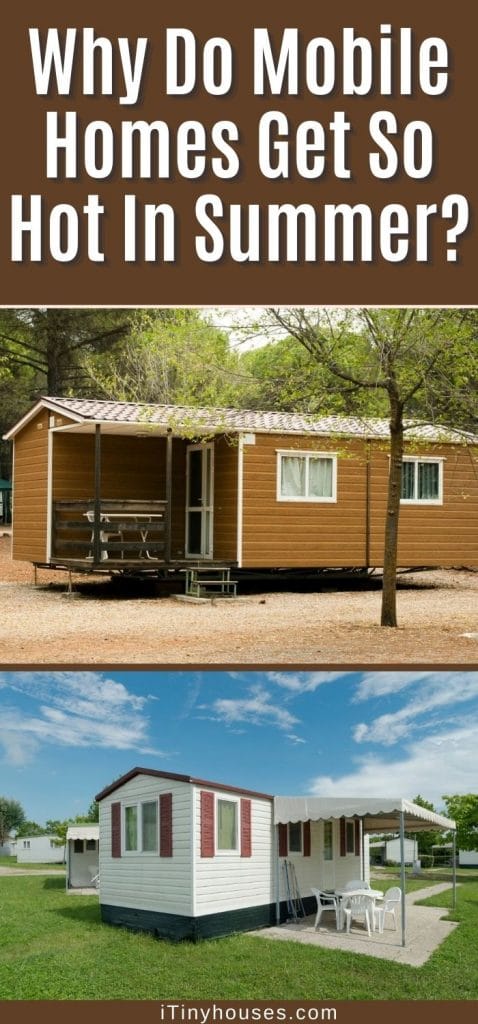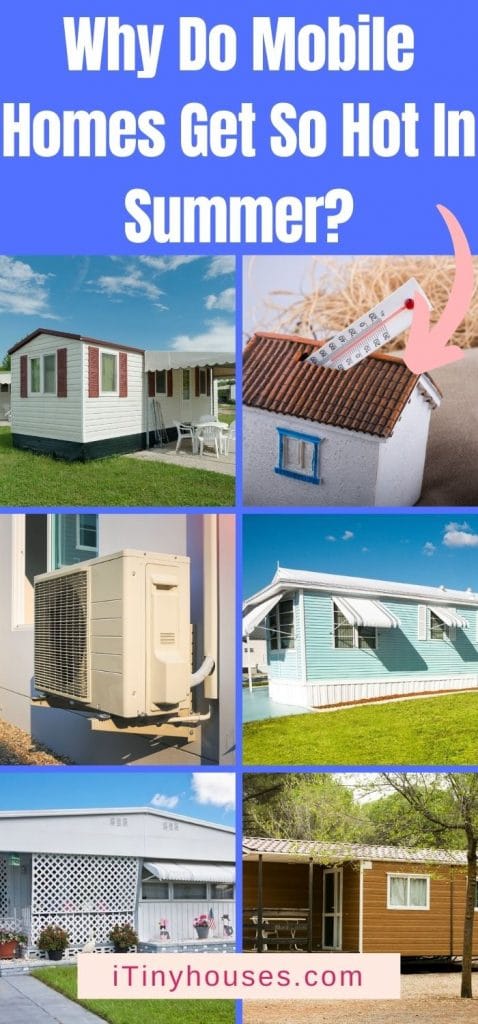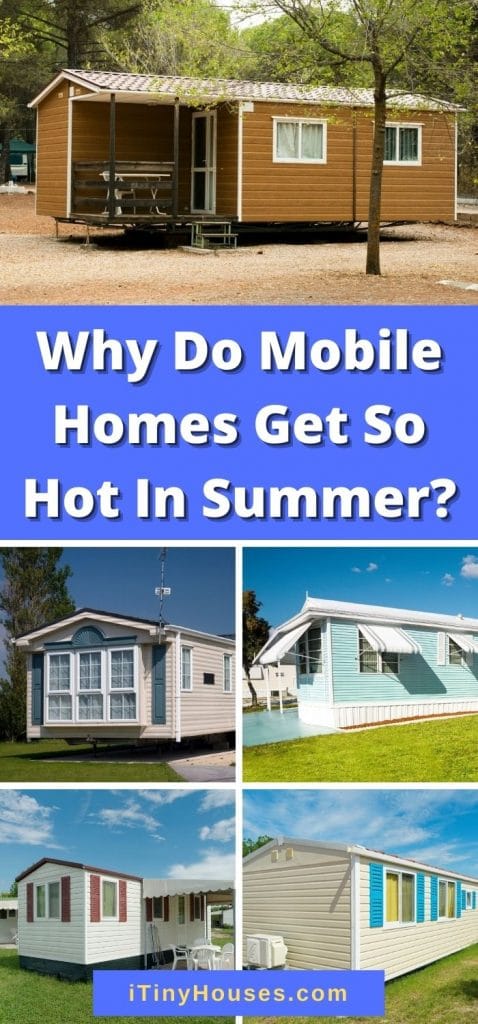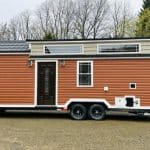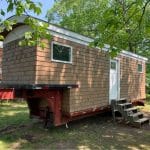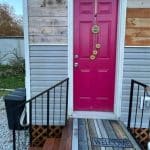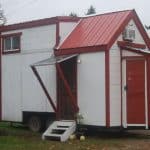If you have ever visited a mobile home during the summer, then there is probably one thing that you will clearly recall from your trip. That is the heat.
During the Summer months mobile homes can often become unbearably warm, especially during the night time.
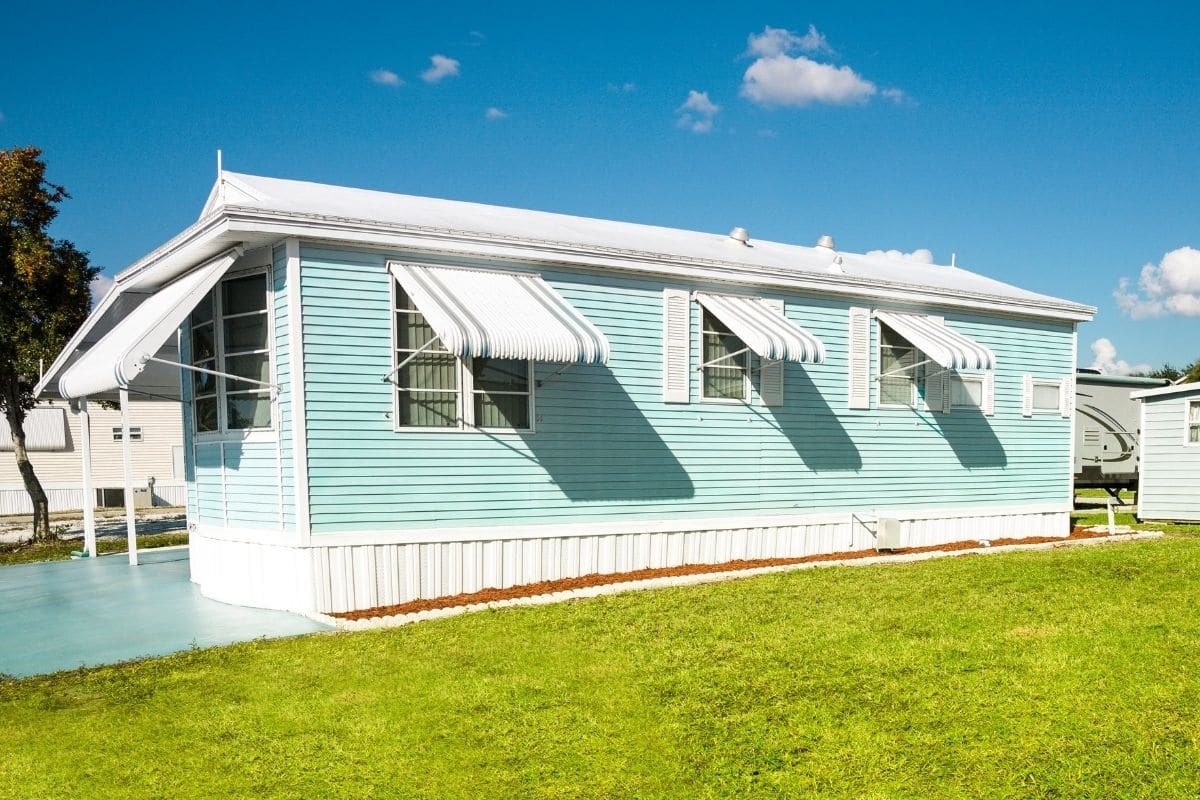
If you thought trying to sleep in your own bed during a hot summer night was difficult, then you should just try sleeping in a mobile home during these months.
But, something that puzzles even permanent residents of mobile homes is why they get so hot during the summer months.
After all, these buildings seem to attract heat, but there is no clear reason why this happens. So, let’s find out!
In this guide, we’ll be taking a look at why mobile homes get so hot in the summer, and lots more. So to find out, keep on reading.
Article Quick Links:
Do Mobile Homes Get Hotter In The Summer?
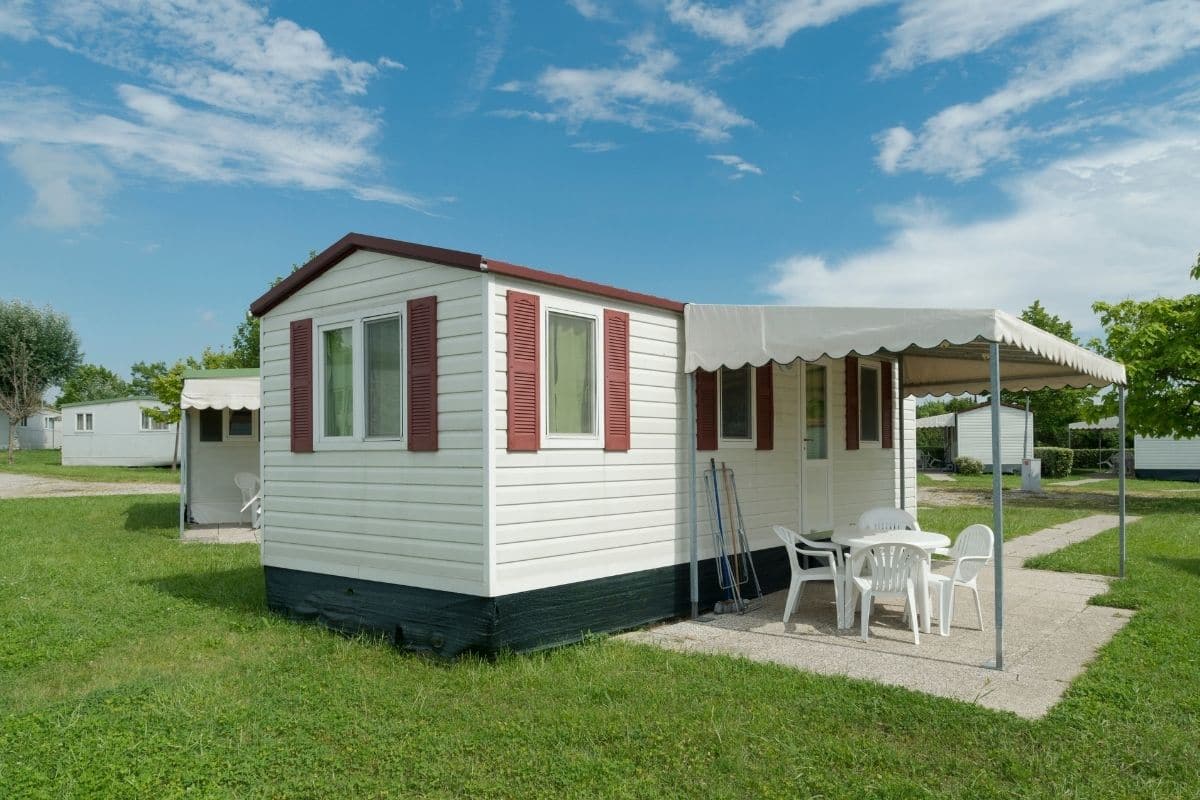
Well, first things first, let’s take a look at whether, or not, mobile homes get hotter during the summer.
There really is no question, and the answer is clearly, yes, they do. It is a well-known fact that mobile homes often overheat during the summer months, and this is something that isn’t debated.
Even if there is some confusion over why mobile homes get hotter during the summer, there is no denying that this is something that happens. It always happens, every year, without fail.
So, yes, mobile homes do get hotter in the summer.
Why Do Mobile Homes Get So Hot In Summer?
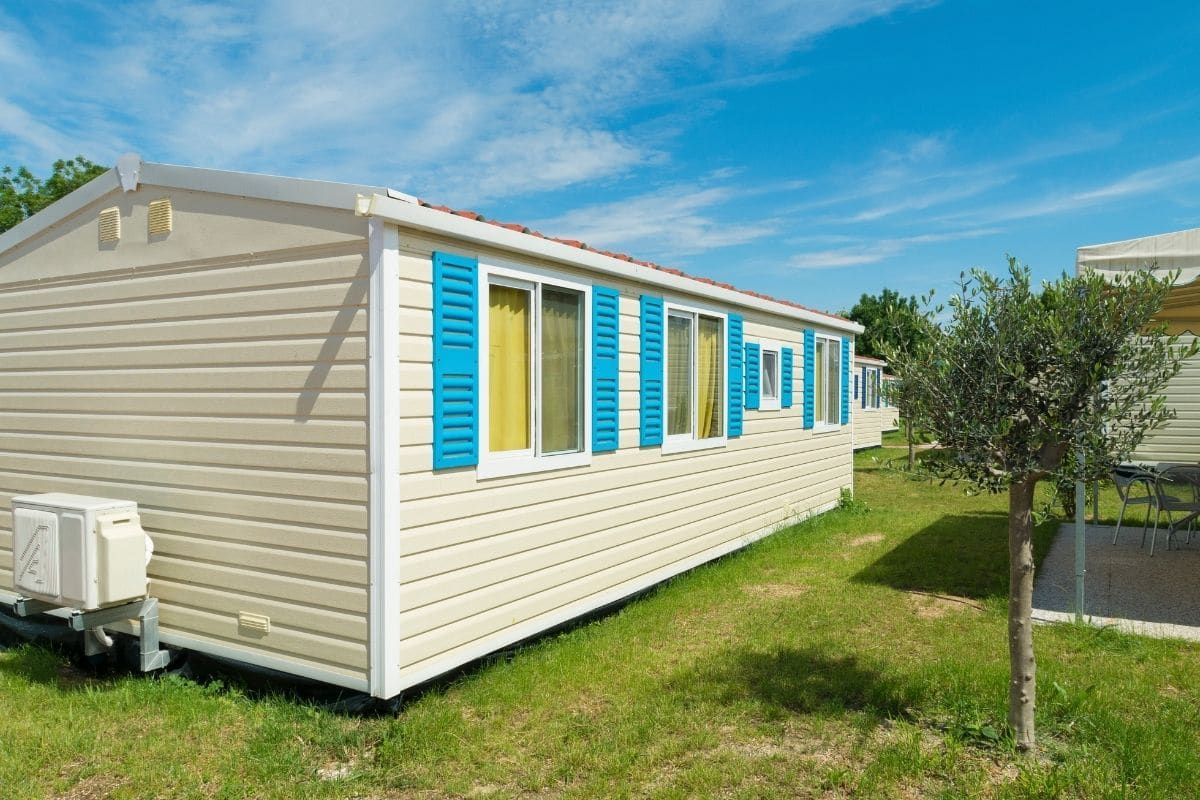
So, there really is no question that mobile homes get considerably hotter during the summer.
As the climate gets hotter, mobile homes tend to retain their heat, and this can mean that they get unbearably hot. Especially if you live in one of the hotter States.
But, you might be wondering why mobile homes get so hot in the summer. Of course, it is understandable that they would get warmer than regular houses because of their design.
However, this simple fact alone does not explain why mobile homes get so hot during the summer. So why is this?
Well, from a scientific point of view, there is a good reason why your mobile home gets so hot during the summer.
That is because the weather outside gets hotter during the summer, so this heat can then travel into your mobile home, both directly and indirectly.
In particular, this affects older mobile homes because the majority of advances in energy efficiency have occurred in recent years.
As older mobile homes were designed before we knew everything that we now know about energy efficiency, they tend to let in more heat.
This not only affects your mobile home with heat in the summer months, but also with cold during the winter months.
As we have said, your mobile home is able to get so hot during the summer months because it will be affected by both direct and indirect heat. But what do these terms mean? Let’s find out.
Heat is able to leak directly into your mobile home when there are gaps that offer opportunity for it to enter.
This can seem a little confusing, but by this, we mean things such as gaps in plumbing seals, or seals on the windows/doors that have become worn and damaged, allowing hot air to enter.
This heat is considered to be ‘direct’ because it has a clear path of entry to your home. So, the issue can often be resolved by resealing windows/doors, and looking for potential leaks.
Indirect heat, however, is a lot more tricky to deal with. That is because indirect heat does not enter the mobile home through gaps and holes that already exist.
Instead, indirect heat permeates through solid surfaces and enters the home because these surfaces are not efficient enough to keep the heat out.
This type of heat commonly affects older mobile homes that lack the benefits of modern day energy efficiency. But, it can affect newer models of mobile homes too.
This is because indirect heat transfer not only targets windows and doors, but also ceilings and walls too.
If you feel like your mobile home is becoming excessively hot during the summer months, then it is likely suffering from either indirect heat transfer, direct heat transfer, or both.
But knowing this simply isn’t enough. It is likely that you also want to know how hot your home might get during the summer months. So, let’s find out.
How Hot can a Mobile Home get in the Summer?
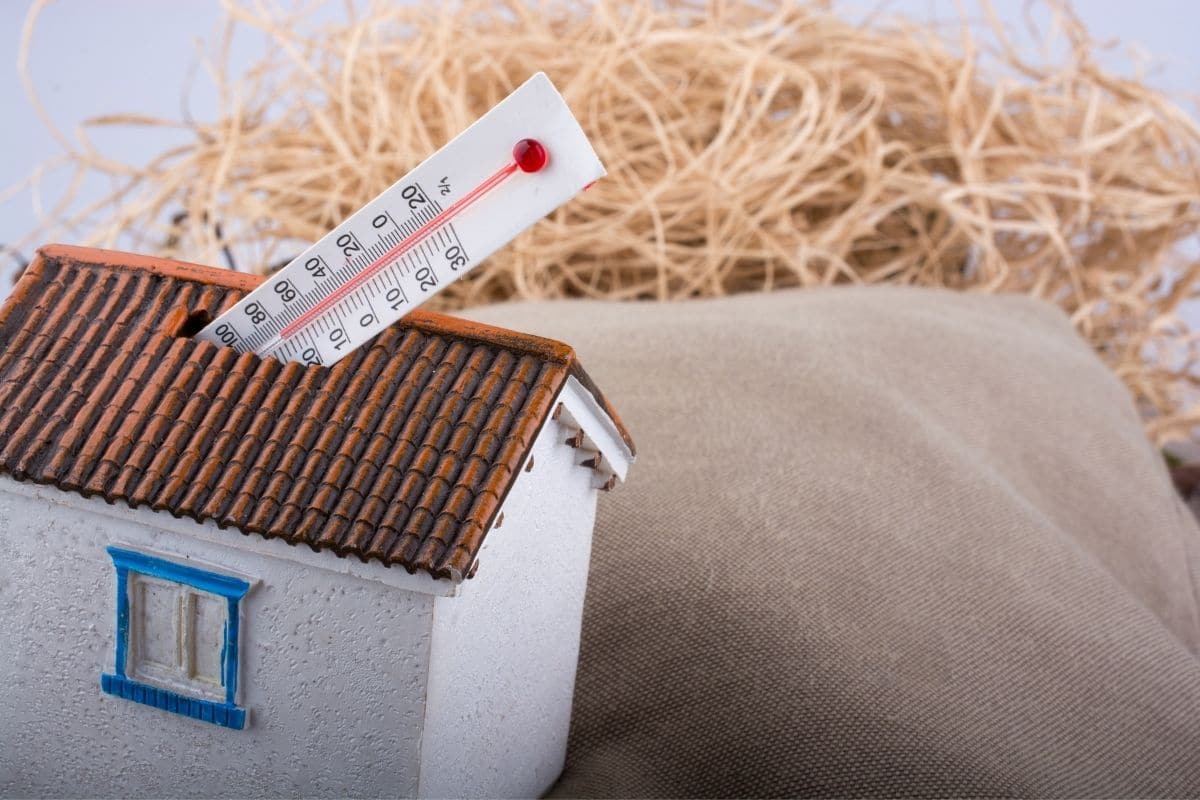
While you know that your mobile home gets hot during the summer, you might never have actually stopped to think about how hot it gets.
It is important to remember that mobile homes will always get hot, even if you take precautions to stop this. That is because the outside of most mobile homes is made using metal, and metal is a conductor.
But, just how hot can they get?
On a hot day, the exterior of a mobile home can reach temperatures of up to 120 degrees Fahrenheit, or more.
While the inside of your mobile home will not get as hot as the exterior, if the outside of the mobile home reaches these high temperatures, the inside of your mobile home will get very hot too.
Especially if your mobile home is being affected by both direct and indirect heat.
In some States, if your mobile home is not properly protected against heat, then it can become too hot to stay in your mobile home.
So, you are probably looking for ways to try to cool your mobile home down during the summer. With that in mind, let’s take a look at some of the best methods for this.
How Can I Keep My Mobile Home Cool During The Summer?
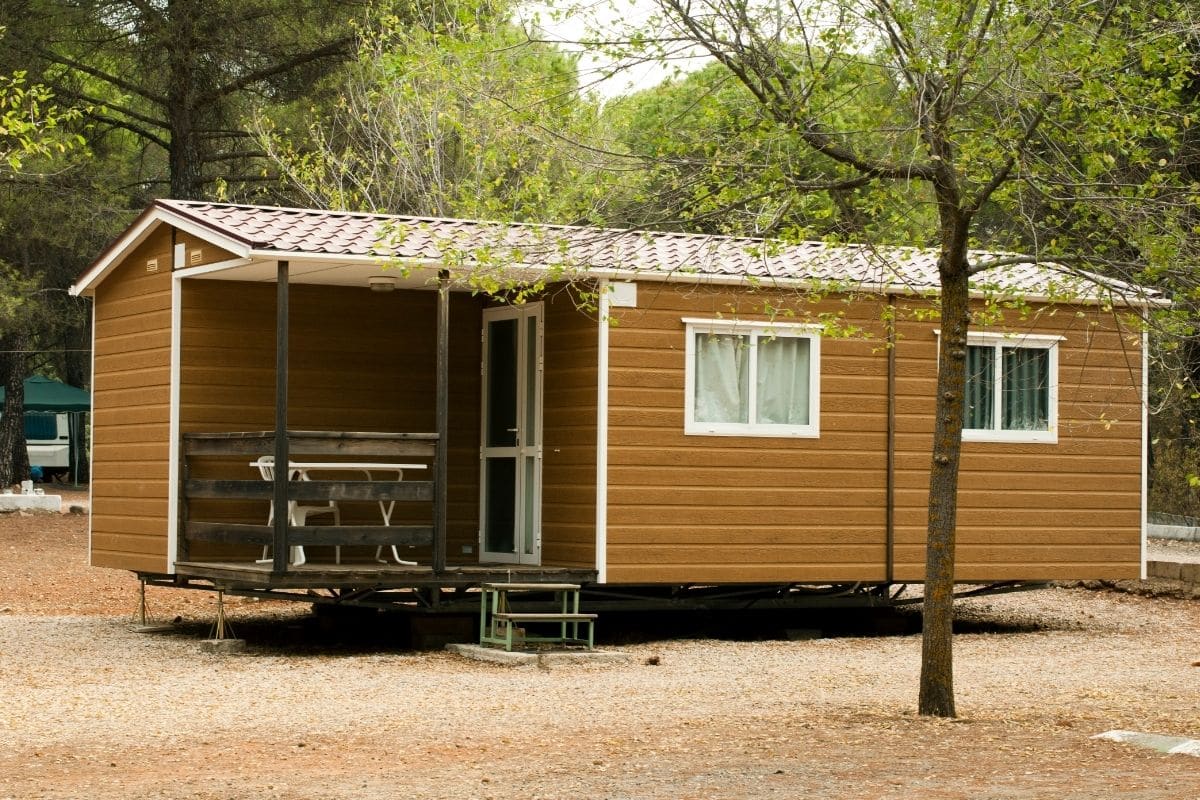
Thankfully, there are quite a lot of different ways to keep your mobile home cool during the summer months. So, let’s take a look at some of the best methods that you can use.
Upgrade The Insulation
You might expect this to be counter-productive, because insulation is usually referred to in relation to keeping homes warm during the colder months.
But, insulation works in two ways, it not only stops your home from becoming too cold, but it also prevents your home from becoming too warm as well.
So, if your mobile home is too hot, upgrading the insulation could help make it cooler. Alternatively, you could just add extra insulation to your mobile home.
If you choose to do this, target the flooring of your home as this is where cool air usually leaks out during the summer months.
Use Shades
If you want a cheaper alternative to keep your mobile home cool then you should consider using shades.
Shades have been used to keep sunlight and heat out of cars and houses for a long time, and they can also be used to help cool your mobile home too.
Shades are a low-cost fix, and they can be set up quickly and easily. You can simply use a sheet to cover the window, or you can invest in some good quality blinds to do the job.
Either way, when you cover your windows/door with that shade, it will keep the hot air out, and the cool air in.
Install An AC System
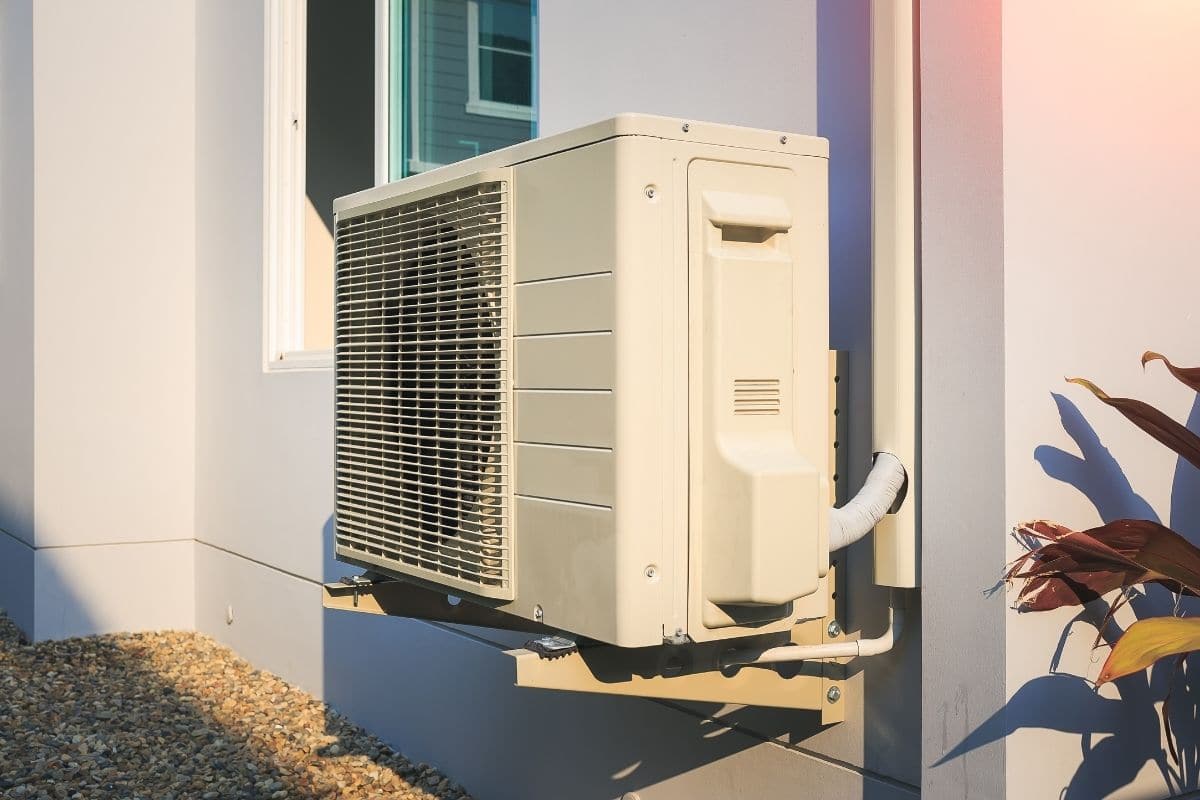
Finally, if you want a quick and easy fix, then installing an AC system is a great option. This isn’t a cheap method, but it can be highly effective, especially if you want to be able to cool your mobile home quickly.
The best AC system for a mobile home is a ductless split system. They are expensive to buy, but cheap to run, and they are great at cooling your mobile home down in the hot summer months.
How Can I Keep My Mobile Home Cool Without AC?
If you don’t want to pay to have an AC system installed in your home, then the best option for you is to use a combination of cheaper alternatives.
So, we would recommend installing some shades to cover all the windows and doors in your home.
If you still want to cool it further, then we would recommend using fans. Fans aren’t as effective as an AC system, but they can effectively cool your mobile home because they will circulate air around the room.
Fans are also great because they can remove the humidity that is associated with warm weather, making your mobile home much more comfortable to live in. Even when it is boiling hot outside.
Summary
In short, mobile homes get very hot in the summer because the exterior of them is usually made using metal. This means that it will conduct the heat from outside.
This heat will then be transferred both directly and indirectly into your home. But, thankfully, there are quite a few methods that you can try out to cool your mobile home, we’ve discussed these in the guide above.

